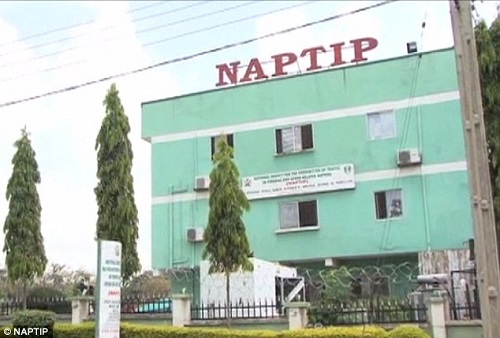The National Agency for the Prohibition of Trafficking in Persons (NAPTIP) has urged stakeholders including, government agencies and Civil Society Organisations (CSOs) to share data they have to help eradicate human trafficking.
The Director-General of NAPTIP, Binta Adamu-Bello, made the call during a capacity building workshop on Monday in Lagos.
The News Agency of Nigeria (NAN) reports that the training was organised by NAPTIP, in collaboration with the United Nations Office on Drugs and Crime (UNODC).
The training is with the theme: ‘A 5-Day Capacity Building for NAPTIP Officers, State Task Forces on Human Trafficking and Civil Society Organisations (CSOs)’.
Adamu-Bello, who was represented by the Director of Research and Programme Development, Mr Josiah Emerole, said the nation lacked adequate data on human trafficking.
“Data is indeed the lifeblood of policy interventions and operations across many fields, particularly in counter-trafficking.
“With reliable data, we can track threats, allocate resources effectively, and develop evidence-based strategies to detect and eliminate human trafficking,” she said.
The D-G said the training was aimed at cascading the National Action Plan (NAP) on Human Trafficking to all national and sub-national actors, who had roles to play in its implementation, and equip them with various reporting tools.
Adamu-Bello said after the workshop, the participants were expected to collect data on human trafficking, using the templates given to them during the workshop.
The participants were also expected to populate the repository with timely and efficient data to be displayed on the dashboard, and coordinate with the national reporting hub, among others.
She urged CSOs to work better than they were currently doing, and ensure that the data collected reached the agency.
“They should ensure that whatever data they have is also sent to the national database.
“So that we know that whatever we are doing in Nigeria, we are working with empirical evidence, not blowing air everywhere and saying we are working,” she said.
Mrs Ifeoma Kanebi, Project Officer, UNODC, said though there had been significant achievements in the fight against human trafficking, it was important to get up-to-date data to further help eradicate the menace and safeguard the rights and dignity of every individual.
Kanebi said the step-down training of the stakeholders on the harmonised reporting tool played a crucial role in the process of ensuring a whole-of-government and whole-of-society approach.
“This is crucial as the collection, analysis, and reporting of reliable, sufficient and up-to-date data are needed to better prevent and combat this crime and its complex and ever-evolving dynamics,” she said.
Mr Oluwabori Ogunkanmi, NAPTIP Project Officer for ‘From Policy to Action: Implementation of the National Action Plan on Human Trafficking in Nigeria (2022–2026),’ said it was difficult to apprehend perpetrators of the crime because of its clandestine nature.
Ogunkanmi said the project was designed to support the execution of the National Action Plan on Human Trafficking in Nigeria.
Speaking on the outcomes of the workshop, he said it was expected to improve stakeholders’ coordination, capacity building, gender sensitivity, and data collection and analysis.
NAN further reports that the project was funded by the Swiss Government and implemented by NAPTIP, in partnership with UNODC. (NAN)























